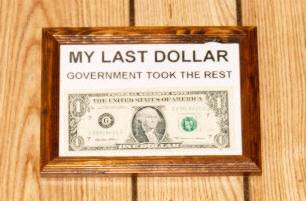HISTORY OF THIS OBSESSION:
 In the past, portrait artists made good money, because a portrait was the only way to preserve the
image of a person.
In the past, portrait artists made good money, because a portrait was the only way to preserve the
image of a person.Music, dance, acting, theater, and sports were the only forms of entertainment available in the past. People paid good money for entertainment on a regular basis.
Because the artisans had good incomes in the past, education in the arts was a good idea at that time. It provided the education needed for making a good living at that time.
Technical innovations have greatly reduced the demand for skilled artisans (see below).
It is known that many despotic kings in various governments wasted tax money on the arts, making lucrative careers for various artisans. These artisans were not used for any purpose other than entertaining the king. The English and French kings were among the biggest tax wasters in this area.
The United States seems to have adopted the same wasteful practices those despotic kings had, even though we have no monarchy. Should the traditions inherited from the monarchy persist in a democracy?
Over time, this funding of the arts by despots became a tradition.
Because athletes can get sports scholarships, children are encouraged to get into sports.
POSSIBLE CAUSES OF THIS OBSESSION:
Artisans want the old lucrative professions back.
People worship entertainment and sports stars.
Politicians want the votes of artisans.
There is a tradition of education in the arts and culture.
Liberal politicians worship the arts. That is evidenced by the fact that they continue to believe that the primary colors the masters used are correct, instead of the primary colors science now knows to be correct.
People with no ordinary job skills want education in the arts.
To the lazy, the arts look like a way to earn money without having to work very much.
For some strange reason, newspaper and media reporters worship the arts. They also worship sports stars.
Preservationists believe that parts of our culture are being "lost," because they are not being preserved in tangible media. But today's culture is preserved in video and audio recordings, not fixed pictures and sculptures. Also, most of today's culture appears more likely to belong in a Petri dish.
There are some people who believe that entertainment is a necessity of life. They are wrong.
Many liberals have a utopian goal of recreating the "golden age" of the ancient Greeks. But they forget that the classical Greek civilization was powered by slave labor.
REASONS THE ARTS ARE NO LONGER IN DEMAND:
Technical innovations in the 19th and 20th centuries have largely replaced these skilled artisans with
automatic technological processes that need very little skill for operation:

Artists were once in great demand, because they were the only people who could reproduce the likeness of a person's face and figure. Then, a few artists decided to make their work easier, and invented photography. For a while, the photographer was the best-paid man in town, replacing the artist. But now that photography has advanced to the point where any uneducated boob can take a picture, the lucrative life of the artist disappeared forever. There is no large demand for art, except for the art used to sell products.
Art has changed from the necessary to the ridiculous. Would you buy a painting of a bin full of colored hardware? Yet, artists demand that someone (government?) must pay them for their worthless creations.
Musicians were in great demand, because they were the only people who could provide music for events. That was true, until Edison invented the phonograph. Now, with high-fidelity reproduced music available, the very best of the best artists, few in number, can entertain the world through their recordings. Any uneducated boob can play a recording. So, excepting the few chosen to make the recordings, the extravagant life of the paid musician has disappeared forever.
The invention of movies and TV removed the well-paid lives of most actors, dancers, and other performers. We can now watch the very best of these artisans perform in our homes. The remaining actors and dancers are mostly unemployed.
Sports have also undergone a similar condensation, as TV brought the best games into everyone's homes. Now, instead of many regional teams, there are fewer than 100 national or global teams in each sport.
In a similar way, the mass production of books and other materials has removed the demand for authors, poets, and other literary artists. Again, the best of the best entertain the world, while the others are not needed. They can find work only if they are willing to work selling products through advertising.
The practice of hiring large numbers of paid artisan positions disappeared when the despot kings (who wasted tax money on the arts) were replaced by democracies.
The unionization of musicians and actors has also reduced the numbers of these artisans who are actually hired, by raising the cost of hiring each artisan.
Higher taxes have reduced the demand for music and the arts, because people have less money to spend on them.
THE SIZE OF THE SURPLUS OF ARTISANS AND ATHLETES:
The number of artisans and athletes actually hired is much smaller than the pool of available artisans and athletes. The following industries are oversaturated with hopefuls trying to "break into the big time":
Music: Only a couple of thousand bands and musicians are making it big at any one time. Out of the millions of hopeful musicians coming out of the schools, that makes about a hundredth of one percent of all musicians that are ever employed in a gainful way in the music industry. The rest of them must be content with being starving musicians, or with playing music as a hobby.
Art: Except for commercial art (making art for advertising and product packaging), there is virtually no demand for artists. Just like musicians, they either will become starving artists, or will relegate art to being an enjoyable hobby. Since most of them think commercial art is degrading to the "purity" of fine arts, they won't work for businesses making art to sell products.
Actors and dancers: Except for the very few seen on TV and in the movies, there is virtually no demand for actors, dancers, and other performers. And of the few actors who are hired, most of those are hired for bit parts. Some are hired for commercials. Just like musicians, they either will be starving actors and dancers, or will relegate their arts to being enjoyable spare-time hobbies.
Sports: When I see the hundreds of thousands of kids aspiring to be big sports heroes, I then think of the sobering thought that there are fewer than 5000 players hired in the top major league sports:
LEAGUE TEAMS PLAYERS ON TEAM PLAYERS IN LEAGUE NFL 32 53 1696 NBA 30 15 450 MLB 30 25 750 NHL 30 24 720 TOTAL 122 - 3616 The remaining athletes must either find employment in training jobs, or find other fields to work in.
So, only a few of the people who train for careers in sports and the arts will be hired in these fields. What are the others going to do for a living?
WHY GOVERNMENT CAN'T RESTORE STATUS OF THE ARTS:
Many artists, liberals, and laymen somehow expect government to be able to restore the lost privileges that artisans used to enjoy. But this cannot be done, because the demands for these services have been permanently changed:
Government has no power to control markets. This is not a matter of law, but a matter of how the economy behaves. Attempts to control markets always have unintended results that usually harm the economy.
Government can't make people desire to buy more of the works these artisans produce. Government has no control over the preferences of individual shoppers. So, if people don't want to buy art, they will not buy art.

The works of these artisans are not necessities. Nobody needs them. All works of art are luxuries.
Nobody wants to buy a pile of burned-out lightbulbs that have been spray-painted orange.
Government should not have the power to use taxation to fund luxuries, even if the majority votes to fund them. It is an abuse of the taxpayers who do not want them funded.
People need to spend their money on feeding themselves and their families, not on higher taxes to fund worthless works of art or art education programs.
Government can't undo the technical advances that replaced artisans with machines that do the same jobs better.
These technologies are obsolete. There is no widespread use for them in the modern world. Only people with a sentimental attachment to the techniques of long ago have any use for the arts of the times before technology.
Because government can't create wealth, government can't subsidize art without overtaxing the people.
The despotic governments that lavished money on artisans no longer exist. Most of them were overthrown by irate taxpayers.
If government subsidizes the arts, the result is the production of a plethora of unwanted art.
Money spent on unwanted works of art destroys wealth. It becomes a drain on the economy. This can take jobs away from other people
Increased teaching of art appreciation in schools creates more unneeded artists, instead of a demand for more works of art.
Government acquiescence to those wanting more art and music taught in schools produces more unneeded artists and musicians.
THE WORST THING GOVERNMENT DOES FOR THE ARTS:
 The worst thing government does for the arts is spending tax money to create special events intended to
support the arts. These include art fairs, festivals for the arts, and art zoning. These don't just waste
tax dollars on the arts. They also disrupt the lives of others,
other businesses, and the economy:
The worst thing government does for the arts is spending tax money to create special events intended to
support the arts. These include art fairs, festivals for the arts, and art zoning. These don't just waste
tax dollars on the arts. They also disrupt the lives of others,
other businesses, and the economy:
Closing off streets to hold a special event keeps people who have nothing to do with the special event from doing their normal business.
Closing through streets to hold a special event leaves travelers from other localities wandering, because they do not know the local detour routes.
Closing streets to hold a special event overloads other streets with the diverted traffic.
Closing streets to hold a special event removes the parking spaces on those streets, while overloading surrounding parking lots with the cars of the people attending the event.
Parking lots commandeered for the special event can't be used for the parking that normally occurs there.
Government also wastes much money advertising the festival.
The artists often do not make enough from the festival to break even.
Government will never collect as much tax revenue from the event as it spends to hold the event.
Such festivals create more unneeded artists and musicians expecting to make a living, instead of a demand for more works of art.
